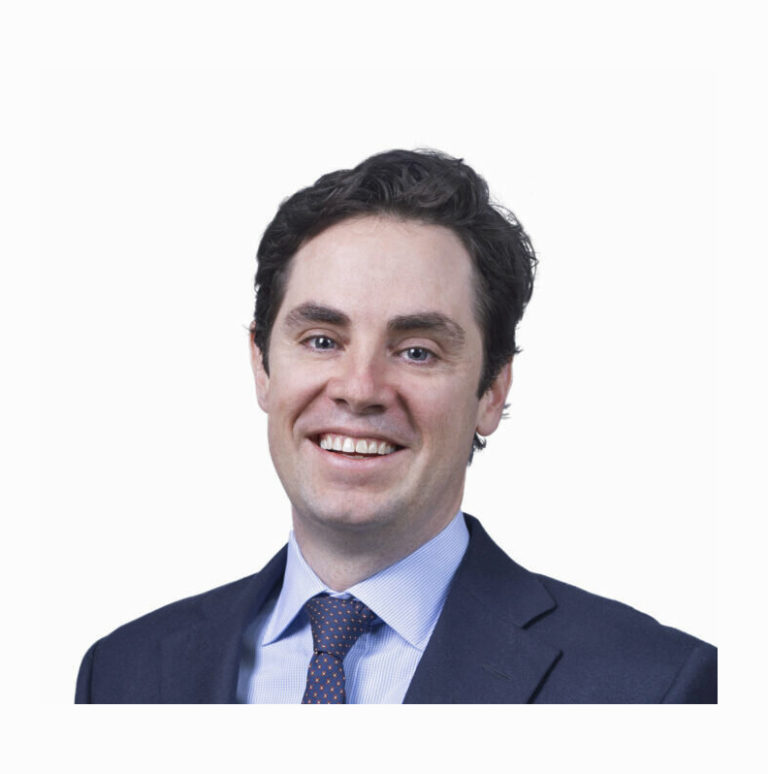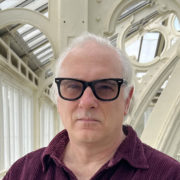Straight talk on the polling profession with The Harris Poll CEO Will Johnson

First things first: I am not a fan of political pollsters. Several times over the past few years, and as recently as December, I’ve gone after the likes of FiveThirtyEight for their terrible bungling in election polling, even as they bragged about their algorithmic and analytical prowess. (You’d have been better off flipping a coin than listening to their confident midterm prediction that Republicans would take the U.S. Senate.)
That said, certain organizations (Gallup comes to mind) have been unassailable in their track record, reliability and ability to course correct when circumstances warrant. One person to watch on this force-for-good front is Will Johnson, CEO at The Harris Poll. With roots stretching back to the JFK era, the organization is recognized as an international leader in public opinion polling, consulting and market research.
Johnson is also a good guy, serving on the board of directors of Tutoring Chicago, which connects economically challenged students with volunteer tutors. (He’s also a member Economic Club of Chicago and the Young President’s Organization.)
Given a chance to chat with Johnson, and better understand the inner workings of how pollsters do their work, I jumped at it. Here’s our conversation, which touched on points ranging from Harris’s storied history to why pollsters sometimes miss the mark — and why staying innovative and above the political fray matters, especially today.
Lou Carlozo: Harris Poll has been around for years, but maybe you can tell us about the history of the Harris Poll and where it stands today in the landscape of polling.
Will Johnson: You’re right, Harris has been around for a long time. We’re celebrating our 60th anniversary this year; it was founded by Lou Harris, the first presidential pollster for John Kennedy. He took that notoriety from the Kennedy campaign and created the Harris Poll as a commercial enterprise.
We’ve been polling for Fortune 500 and Russell 1000 companies in the U.S. and all over the world for the last half-century. We don’t do paid direct political polling; we try to stay out of partisanship. Harris, I believe, has a role in educating the public. We do broad polling about issues of the day and presidential approval ratings.
Lou: How is Harris different from other prominent polling operations?
Will: First, I think it starts with our history and our reputation. Harris started as one of the first presidential political pollsters. Our credibility separates us from a lot of competitors, whether they’re new entrants in the market or polls that have maybe moved one way or another.
Lou: Yeah, I’ve been a harsh critic of some of the other pollsters out there but we won’t get into that. [Laughs.]
Will: From a partisan perspective, Harris has always tried to stay above the fray. We view ourselves as social scientists and statisticians. And second, there’s a commitment to innovation. Harris was the first polling company to pioneer online polling in the ’90s. We were the first ones to go from telephone to online polling. And today, that spirit of innovation still takes center stage. We’re a true leader in analytics-based polling, which leverages not just the stated polling data but also behavioral data and statistics to answer difficult questions for clients. On the lower end of polling, we’ve entered the software market, providing fast and economically efficient polling.
Lou: OK, a little exploration of the polling landscape. A New York Times piece recently referred to the damage inaccurate political pollsters have done. For certain outlets, 2020 and 2022 were unmitigated disasters. Polling has gotten more and more precise, more data-driven, and yet there are instances where pollsters aren’t nailing it. What explains that, in general?
Will: It’s a real issue for our industry. In 2016, there was a quiet kind of Trump voter that the traditional polling methodologies and techniques didn’t reach. It caused a lot of soul-searching in the industry. Perhaps we rested on our laurels in how we understand voters, who are at the end of the day just people.
As people move onto their cell phones and away from traditional communication with polling groups, we need to account for behavioral change so that we can reach the right people at the right time and get an accurate representation of what’s going on. Just because something has worked for a long time doesn’t mean that it’ll always work.
We also need real respondents for surveys, not bots. We need to make sure that real people take these surveys, and that the respondents statistically represent what’s out there. … If you look at the numbers, we’re closer in ’20 and ’22. But I mean, it’s still a challenge. There’s no question about it.
Lou: It sounds in part like an issue where polls can move into the territory of handicapping a horse race
Will: We don’t want to get caught up in the partisanship of candidate polls and horse races. Frankly, I think you’re going to get more accurate results from a polling standpoint when you get beyond the horse races and measure people’s takes on different issues, and why respondents feel the way they feel. I want to get to the “why’s.”
Lou: Absolutely. Polling is clearly a science, but it’s also an art. Help us understand how the science and art combine.
Will: Great question. A lot of the science is in statistics. You want a large enough sample of the population you’re set out to measure so that your findings are statistically significant.
I’d say the art comes in two parts. First, how do you design nuanced survey questions? You can get very different answers if you ask a question just in a slightly different way. You can also spend a lot of time on the order in which those questions appear. It’s not as easy as following a template. We see ourselves as umpires in this game when we’re asking questions. We want to ask, “How are we going to get the closest to the truth?” and not “How can we drive up someone’s agenda?”
Second, how do you tease out actionable insights? You look at all the data and then ask, “What’s the story? What are those nuggets of data that we can pull out that are interesting and help us learn something?” The story could be about how a product is made, or how people feel about a particular issue in the city.
That’s what I love doing as a practitioner. I do work with the Economic Club of Chicago and Crain’s Business because I’m passionate about Chicago and Illinois: I was born and raised here. It’s a duty at Harris of being in culture, asking questions of our neighbors.
Lou: Whether for you personally or people in the polling industry or at Harris, what’s the most rewarding or satisfying part of this work?
Will: I think it’s two things. First, it’s learning things in the data that may go against your intuition. For example, we did a COVID tracker every week. Conventional wisdom dictated that older people would be more scared of the virus and less likely to go out. But when we looked at the tracker broken down by different age segments, we saw older people were more likely to go out and less scared of the virus than younger people. It changes your perception of an issue.
Second, when you get under the hood and look at an issue, you realize that we’re really a lot closer together. There’s all this talk about how divided we are as a country. Take Chicago for example. You’d think that there’s a lot of division in the city. We just had an election, but 98% of Chicagoans think that public safety is important. They want better policing, but they want more money for other things. A huge majority — we’re talking 80% of the country — wants reasonable gun control.
Looking at the nuance, that’s where stated polling’s interesting. Looking at ones and zeros, you’d think things are black and white, but they’re not. It’s way more gray.
Lou: It seems like an ideal field, like journalism, for someone who wants to get to and understand the truth.
Will: It’s learning things in the data that may go against your intuition. We did a COVID tracker for free, every week, where we provided information on how people were feeling about different things — from their own personal safety to whether they wanted to go out to restaurants. And the common conventional wisdom was that older people were more scared to go out and were scared of the virus, the damage it could do.
But when we looked at this tracker and broke it down by different age segments, we saw older people were actually more likely to go out and less scared of the virus than younger people. That’s just one example that flips conventional wisdom on its head. And you look at this and you say, “These are the numbers,” it’s clear. And so it kind of changes your perception about an issue. So whenever you find things like that, that’s really rewarding.

Lou Carlozo is the editor and publisher of Talking Biz News and Qwoted’s editor-in-chief. Polls overwhelmingly endorse his qualifications for making the morning coffee run. Email: lou@qwoted.com or connect on LinkedIn.
POPULAR POSTS
LATEST ARTICLES
CATEGORIES
